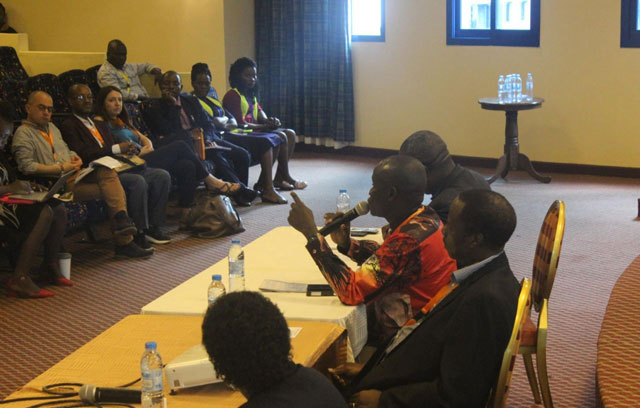
Entebbe, Uganda | THE INDEPENDENT | Population experts are proposing new investment rule book for guiding public sector investment for developing countries to reap the most from their young populations.
The Rule Book is a set of economic principles that must be followed for higher returns on net investments. The ones they are proposing place human capital development at the heart of socio-economic transformation of countries.
Dr John Ssekamatte Ssebuliba, a Development and Population Consultant in Kampala says economic models based on the proposed rule book have yielded better investment dividends in Per Capita Gross Domestic Product compared to investment in only public infrastructure – roads, electricity and industries.
Dr Ssekamatte says they used the case for Uganda’s socio-economic transformation agenda to indicate that the Country will realize better Per Capita GDP over a space of 30 years had implementation commenced by 2017.
He says the new investment models prioritizing human capital development would propel Uganda’s Per Capita Gross Domestic Product from US$ 1,066 (approximately 4 Million Shillings) in 2017 base year to US$ 9,523 (UGX 33.4 Million) by the year 2040 when it expects to incline into the Middle Income Status.
For Uganda to achieve the proposed targets outlined in the Vision 2040, population scientists say decline in fertility and mortality must be accelerated through keeping girls in schools, promoting affordable family planning services and strengthening the organization of the sprawling urbanization into people-friendly settlements for the influx of the population fleeing the rural areas in search of jobs.
They want government to redirect the 80 percent of the health budget currently spent on curative health to preventive healthcare, the introduction of universal early childhood development and a shift in the education system to competency-based assessment to increase the number of decent jobs.
Dr Sarah Ssewanyana, the Executive Director of Economic Policy Research Center says without strategic investment in health and wellbeing of the human capital, the mega infrastructural development being undertaken will only boil down to wastage of resources.
“Research is telling us that there is a shift in disease burdens in the country which calls for government to rethink its economic policies. The African Union has identified Four areas namely governance of resources, creation of employment and enterprise development, skills development and human capital development. We must sit down as a country to assess our performances against these indicators” she stated.
Dr Ssewanyana says with the current capacity of Uganda’s economy to create new jobs being equal to the number of new children born every year, the country runs the risks of missing its socio-economic development targets in the long run when it fails to invest in the human capital.
Dr Ssekamatte says in 2010 Uganda missed her first opportunity for achieving socio-economic transformation by failing to integrate investment in human development in its public sector planning.
This he says triggered the development of the first National Development Plan centred on Wealth Creation, Job Creations and Investment in industries. He said the second phase of the National Development Plan committed the same mistakes which government has now opted to address in National Development Plan III.
The goal of the third phase of the National Development Plan is investment in Human Capital through sustained industrialization for job creations. Uganda is home to 42 million people with 70 percent being youth.
The two were speaking at a panel discussing on strategies for harnessing Uganda’s growing population at the 8th African Population Conference taking place at the Imperial Resort Beach Hotel in Entebbe on Wednesday.
The conference brought together more than 2,000 economists, population scientists, policymakers and members of the civil society to discuss opportunities for harnessing Africa’s 1.2 Billion population.
*****
URN
 The Independent Uganda: You get the Truth we Pay the Price
The Independent Uganda: You get the Truth we Pay the Price


